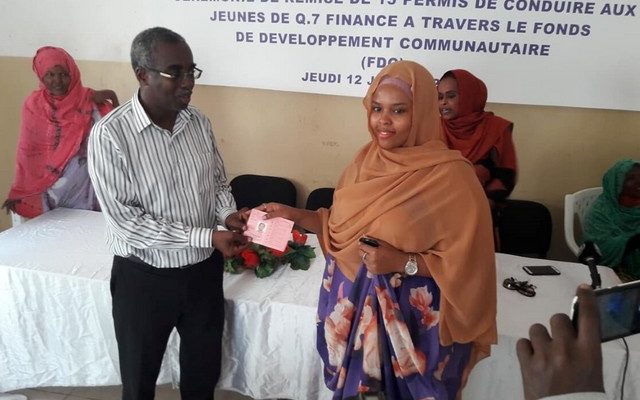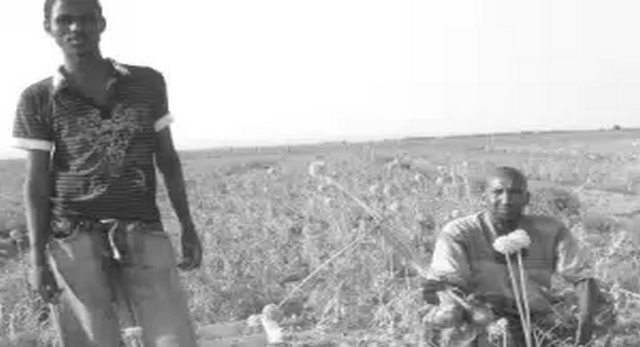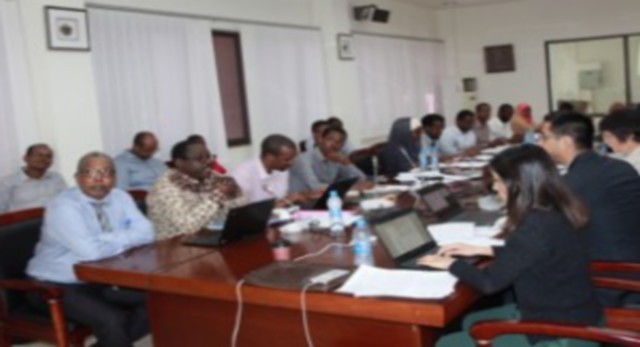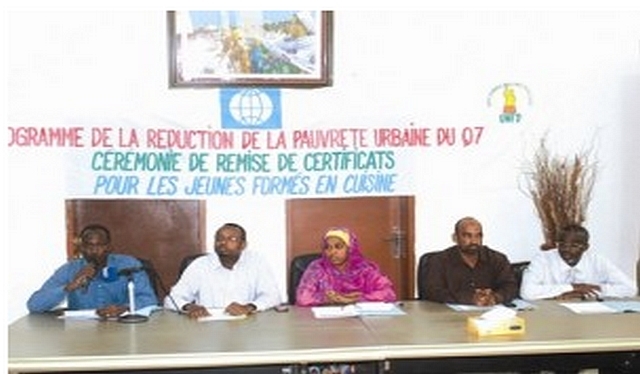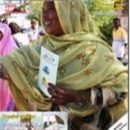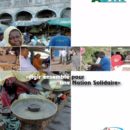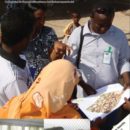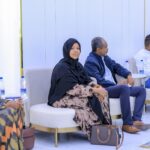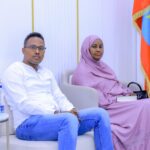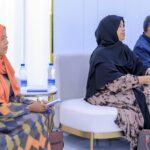The facilitators of the workshop last Saturday at the People Palace sensitized participants on the need to adopt an integrated micro Islamic finance model. It is in this way to pool and harmonize the initiatives of industry players towards a common goal of improving the living conditions of vulnerable populations.
Under the aegis of the State Secretariat for National Solidarity, a workshop on micro Islamic finance was held last Saturday at the People’s Palace. The meeting was attended on-site director of microfinance within the Djibouti Social Development Agency (ADDS), Abdallah Mohamed Houmed, the representative of the Central Bank of Djibouti, the Islamic micro finance consultant, Mansour Faye and a number of professionals from diverse backgrounds.
Workshop Facilitators sensitized the participants on the need to adopt an integrated micro Islamic finance model. It is in this way to pool and harmonize the initiatives of industry players towards a common goal of improving the living conditions of vulnerable populations.
As recalled Mansour Faye consultant, micro Islamic finance is designed as a side together to promote financial inclusion, economic, and social potential customers long excluded from the traditional banking system.
Clearly, it is important to support income-generating activities for the poor and promote the development of industries starting from the opportunities of the country (fishing, mining, trade, crafts, services).
That at least is the role for the Islamic finance industry that answers the need for ethics Djiboutian customers, anxious to respect the principles of Islamic Sharia. Indeed, Islamic finance is based on five principles which bans taking of interest, uncertainty related to speculation and illicit assets such as alcohol, games of chance and tobacco, all prohibited by Sharia. It is based on the sharing of profits and losses, and the existence of an underlying asset. It requires no collateral in contrast and is devoted exclusively to the vital needs of the country.
Unlike conventional finance, Islamic finance does not practice speculative methods and does not offer interest taken to compensate loans. Islamic banks have used other levers to be remunerated. This is the case to say for the unity of microfinance Balbala. Since its official launch in November, 2012, the entity has raised the awareness of 1,000 people, identifying 235 projects funded to date 146 projects including 104 for women. All these products are subsidized in part by the ADDS to retain potential customers of the popular savings and credit union but above all go beyond the assistantship with the promoters of micro projects.
Micro Islamic Finance: Pooling actions
A propos

L’Agence Djiboutienne de Développement Social, Etablissement public à caractère administratif, issue de la fusion de l’ancienne Agence Djiboutienne d’Exécution des Travaux d’Intérêt Public (ADETIP) et de l’ancien projet Fonds Social de Développement (FSD).
- Agence Djiboutienne de Développement Social
- Avenue Mohamed DJAMA ELABEH Plateau du serpent
- BP:4298 Djibouti
- République de Djibouti
- Tel: +253 35 86 55/ +253 35 82 82
- E mail: direction@adds.dj
- Site Web: www.adds.dj
Nous localiser via google map
© Agence Djiboutienne de Développement Social - 2025. Tous droits réservés



